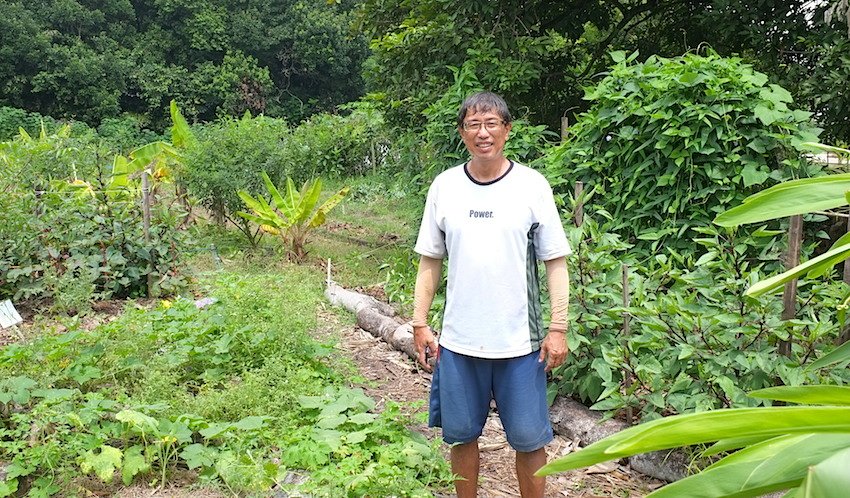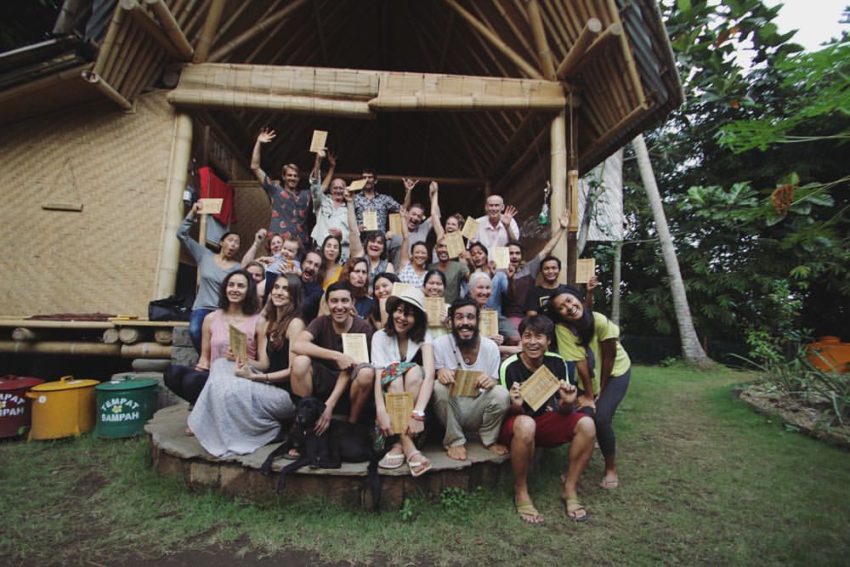Meet Mr Tang Hung Bun, a joyful, down-to-earth and all-round lovely gentleman. An avid nature lover and experienced permaculturist, Mr Tang is a former physics teacher, and has co-authored a book titled “A photographic guide to the dragonflies of Singapore“. He has since retired from teaching to focus on his passion of farming. He now volunteers with Farmily, a social enterprise which works with senior citizens through farming naturally-grown, pesticide- and chemical-free produce, it is also the farming arm of non-profit group, Ground-Up Initiative (GUI).
I first learned of Mr Tang through his blog, where he shared a soul-crushing video of his established permaculture food forest destroyed by heavy machinery. His landlord decided to lease the land that he rented to a developer, and what he had created in almost two years was demolished in three days. I would later hear my urban farmer friend, Ong Chun Yeow, mention Mr Tang in many of our conversations, and it took me quite a while to make the connection that he was that same person.
I had the immense fortune of meeting him during my visit to Kampung Kampus, and he gave me an impromptu tour of a permaculture garden that he and other volunteers had been working on since mid-January this year, after a few of them discovered a small, temporarily unused plot on the premises. Here is a video of that plot before and after Mr Tang and other Farmily volunteers worked on it. Incredible and inspiring. One of the remarkable things about this garden is that they do not water it.
As you can see from the video, he grows wintermelon, eggplants, roselle, taro, chilli, currant tomatoes, okra, winged beans and bittergourds. Some of these edible plants are intercropped with marigolds, a wonderful companion plant, and the garden features several pigeon pea plants, a shrub favoured by permaculturists for its nitrogen fixing qualities and as “chop and drop” material, there is also a neem tree, which is also a nitrogen fixer, and has many medicinal properties, its small branches can be used as a natural toothbrush.
It was such a pleasure to spend time with Mr Tang. Please read on to find out more about him and his interesting perspectives!



